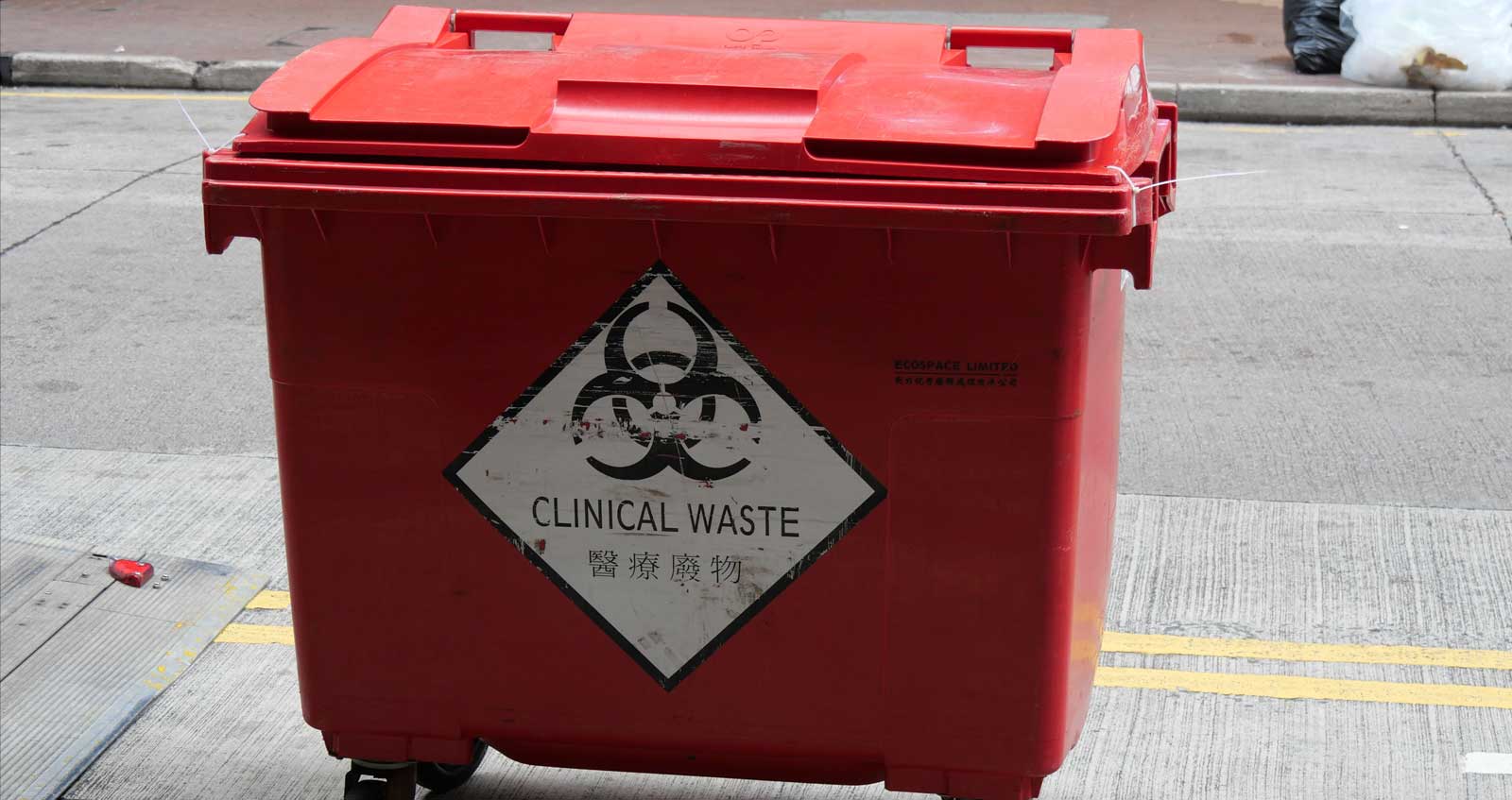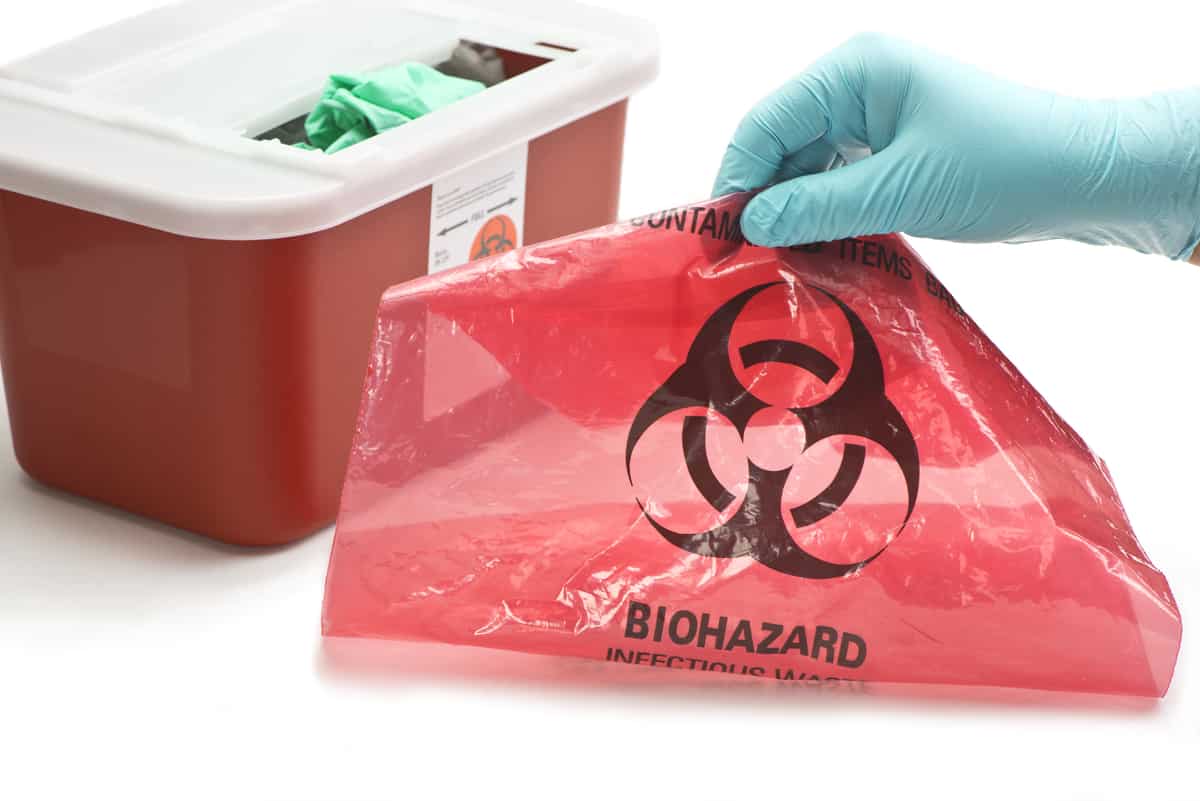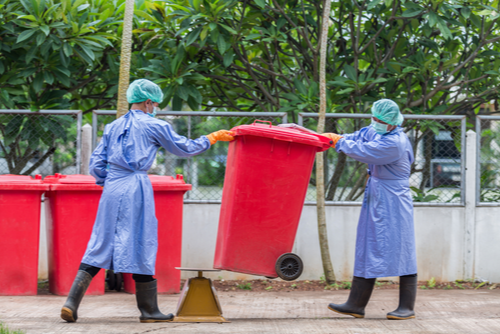Remain Ahead of Rules: Expert Guidance on Medical Waste Disposal
In a globe where the medical care industry is constantly progressing, it is important for clinical centers to remain in advance of regulations when it concerns the appropriate disposal of clinical waste. With stringent guidelines and regular regulative modifications, it can be testing to browse the intricacies of this procedure. With professional guidance, facilities can make sure conformity and alleviate dangers connected with incorrect waste disposal. From comprehending the different classifications of clinical waste to carrying out the appropriate collection and partition techniques, this conversation will offer actionable pointers and useful insights to help centers stay ahead of laws in the ever-changing landscape of medical waste disposal.
Recognizing Clinical Waste Categories
Understanding clinical waste classifications is important for correct disposal and administration in healthcare centers. Medical waste describes any kind of waste generated by medical care tasks that might position a threat to public wellness or the atmosphere. It is essential to classify medical waste precisely to guarantee its safe handling, transport, disposal, and therapy.
There are a number of groups of medical waste that medical care facilities need to be knowledgeable about. The most typical groups consist of infectious waste, pathological waste, sharps waste, pharmaceutical waste, and chemical waste. Each classification has details standards and regulations for its proper administration and disposal.
Contagious waste consists of products infected with blood or various other physical liquids, such as handwear covers, dress, and laboratory cultures. Pathological waste refers to human tissues, organs, or body parts that need special handling and disposal. Sharps waste consists of utilized needles, syringes, and various other sharp items that can trigger injury and transfer infections. Pharmaceutical waste makes up ended, unused, or polluted drugs that need careful handling and disposal. Lastly, chemical waste includes solvents, disinfectants, and various other chemical materials made use of in medical care centers.
Remaining Up-To-Date With Regulatory Modifications
Staying current with regulative modifications is critical for medical care centers to ensure compliance and proper administration of medical waste disposal. medical waste removal services. With regulations constantly advancing, it is crucial for healthcare facilities to remain current to stay clear of fines, penalties, and possible harm to the atmosphere and public health
To stay ahead of governing modifications, healthcare facilities need to develop a system for tracking and tracking updates. This can be done by registering for regulative e-newsletters, attending meetings and workshops, and proactively joining sector associations. Furthermore, facilities must mark a team member or team accountable for remaining informed and disseminating details to pertinent stakeholders.
Routine interaction with regulative companies is likewise crucial. Healthcare facilities need to establish partnerships with local, state, and federal companies to guarantee they recognize any type of adjustments in regulations that may influence their waste management methods. This can be done with normal meetings, involvement in public remark periods, and aggressive engagement with regulative companies.
Moreover, healthcare centers should take into consideration partnering with waste management business that specialize in clinical waste disposal (medical waste disposal services with WasteX). These companies are typically skilled in the current regulations and can offer support and assistance to make certain conformity
Implementing Proper Collection and Segregation Techniques
To properly handle clinical garbage disposal, medical care centers have to develop correct collection and partition techniques in conformity with regulative guidelines. Executing these methods ensures the safe handling and disposal of potentially unsafe products, secures the atmosphere, and lessens the danger of infections and injuries to healthcare employees and the public.
Proper collection and segregation approaches entail the use of assigned containers and labeling systems. Healthcare centers must supply clearly classified containers for various kinds of medical waste, such as sharps, transmittable waste, pharmaceutical waste, and non-hazardous waste. These containers should be color-coded and plainly significant to stay clear of confusion and advertise very easy identification.
In addition, health care facilities need to educate their team on the right procedures for accumulating and setting apart medical waste. This consists of informing them on the various kinds of waste, the suitable containers to make use of, and the relevance of complying with guidelines and laws. Routine training sessions and correspondence course ought to be conducted to make certain that personnel members stay updated on best methods.
Moreover, health care facilities need to establish a system for normal collection and disposal of clinical waste. This may entail partnering with accredited waste administration companies that specialize in medical garbage disposal. These business will certainly make certain that the collected waste is carried and thrown away in compliance with governing requirements.
Selecting the Right Disposal Methods

Incineration is just one of one of the most reliable and usual approaches for getting rid of certain types of medical waste, such as pathological waste and sharps. It involves the controlled combustion of waste at high temperatures, reducing check here it to ash. Incineration can launch unsafe toxins right into the air and contribute to air pollution.

Various other disposal techniques include chemical therapy, microwave treatment, and landfilling. Chemical therapy includes making use of chemicals to disinfect and counteract the waste. Microwave therapy utilizes microwave power to warm and decontaminate the waste. Landfilling entails burying the waste in a marked garbage dump area (medical waste disposal services with WasteX). Landfilling must be the last hotel due to the potential risk of contamination to dirt and groundwater.
Guaranteeing Compliance Through Documentation and Training
After thoroughly thinking about the appropriate disposal methods for medical waste, healthcare centers have to make certain conformity with policies and reduce environmental impact by executing effective documents and training treatments. This action is important in preserving a lasting and risk-free environment for both healthcare employees and the public.

Medical care employees that manage clinical waste must get proper training on waste partition, managing, and disposal treatments. By offering extensive training, health care facilities can empower their staff to make enlightened choices and lessen the danger of incorrect waste disposal.
Conclusion
In conclusion, staying in advance of laws in clinical waste disposal is vital for medical care facilities. medical waste removal. Understanding the various classifications of medical waste, remaining upgraded with regulative changes, implementing correct collection and partition methods, picking the proper disposal techniques, and guaranteeing compliance via documents and training see this are all crucial actions. By following these standards, health care organizations can properly get rid of and manage of clinical waste in a accountable and safe fashion
From comprehending the various classifications of medical waste to applying the ideal collection and segregation approaches, this discussion will certainly supply actionable ideas and valuable understandings to help centers stay ahead of guidelines in the ever-changing landscape of medical waste disposal. - medical waste disposal services with WasteX
The most common groups consist of transmittable waste, pathological waste, sharps waste, pharmaceutical waste, and chemical waste. Healthcare centers should provide clearly labeled containers for different types of medical waste, such as sharps, infectious waste, pharmaceutical waste, and non-hazardous waste. Healthcare facilities should establish an extensive system to tape-record and track all aspects of medical waste disposal, including kinds of waste created, amounts, and disposal methods made use of. Health care employees who take care of clinical waste ought to obtain proper training on waste segregation, taking care of, and disposal treatments.